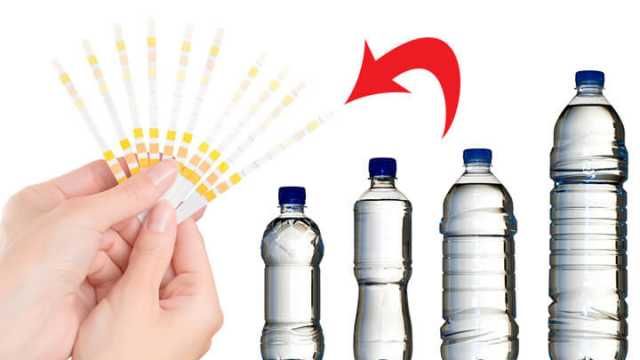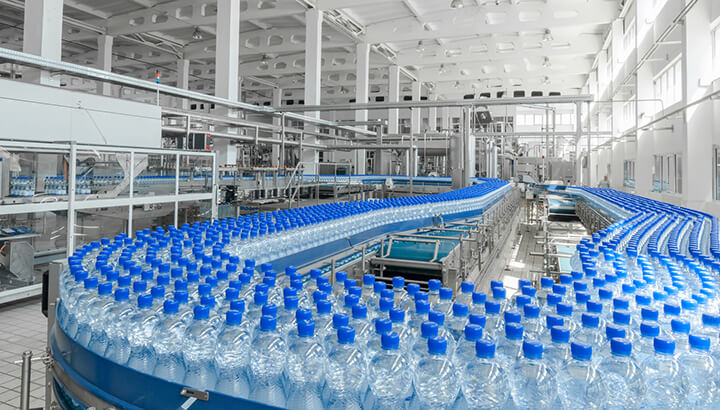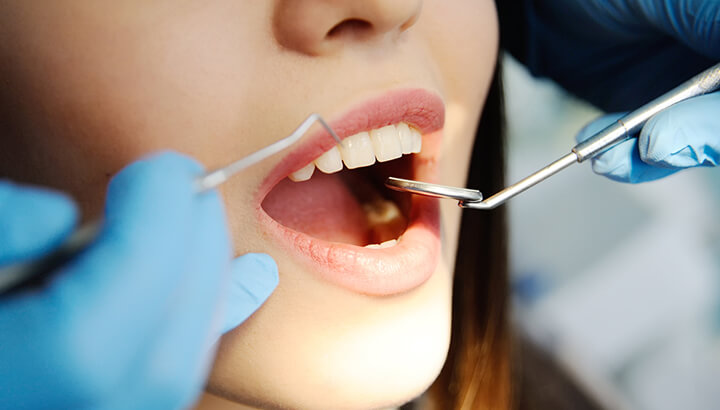
If you think you’re making a healthy choice by buying bottled water, it might be time to think again. That’s because conventional methods of bottling water use extreme filtration and ozonation to treat the water prior to bottling, in order to guarantee a certain level of hygiene and sanitization. Sure, this water might be safer to drink than your average tap water, but what is it doing to your health?
In this article, I’ll examine the methods by which big-name water companies turn either tap water or natural water into bottled water, and what effects these ultra-processed waters can have on your health. Next, we’ll dig a little deeper into which bottled water products are healthier to drink, including those that are more alkaline and, therefore, better for you.
What conventional bottling is doing to your water
Both the Environmental Protection Agency (EPA) and the Environmental Working Group (EWG) have determined through lab testing that bottled water is inferior to tap water. That may come as a surprise to you, as the marketing used by most big-name water companies suggests that the water you get from bottles is far better for both your safety and health than the stuff that comes out of your tap. But while those bottles may guarantee a certain level of safety from certain water-borne pathogens (which you’re highly unlikely to get from tap water anyway), they completely degrade the quality of that water in the process.
The majority of bottled water companies use extreme filtration methods to ensure standardization of their products. These methods include ion-exchange, reverse osmosis, distillation and deionization. Some companies may use a combination of these methods, or all of them, to cover their corporate backsides and avoid consumer liability.
The result of extreme filtration is “dead water”

No matter where you water originally comes from, be it a deep-water well, spring, river, lake or municipal water supply, the end product is always the same. It’s water that has been completely denatured and molecularly changed from its origin. “Dead water” is void of all the minerals that are typically found in natural water. It is so-called for two reasons.
First, this water has no life force. It has literally been sucked of all the health-supporting minerals and nutrients that our planet’s organisms (including humans) have grown to depend on. Second, organisms that drink only this extreme-filtered water would eventually die, as it can contribute to the death of tissues and cells in the body.
The result is a water that can actually harm — not heal — your health. Drinking demineralized bottled water actually contributes to nutrient loss in the body, as the dead-water acts to absorb minerals from your bones, joints and muscles. Kind of like a vacuum — the water sucks in the minerals it lost during the process of filtration in order to return to its natural state.
Bottled water may have harmful contents
There are plenty of other reasons why most bottled water is best avoided. How about the fact that around a quarter of all bottled water is simply glorified tap water, with a massive markup in price? Companies like Aquafina and Dasani simply take the tap water, treat it with ultraviolet light to kill any bugs that probably aren’t there anyway, bottle it and make a vast profit.
Not only that, many studies show that bottled water can contain phthalates, mold, microbes, benzene and even damaging heavy metals like arsenic. This health-harming effect is most readily seen in babies who are given bottled water. Research indicates that the lack of sodium and other minerals in this water can lead to hyponatremic seizures.
Most bottled waters are highly acidic

At The Alternative Daily, we’ve written various articles on how the modern American diet contains far too many acidic foods and drinks. In this article, we talk about how acidosis can occur in people who eat too many acid-forming foods, such as eggs, dairy, meat, white flour, sugar, coffee and soda. In essence, a traditional Western diet. These foods imbalance our internal pH, exhausting alkaline reserves and increases risk of disease and infection. Because most Americans are putting so many acidic foods in their bodies, any consumables that offset this imbalance can create a marked improvement in our health.
Most bottled waters are at the other end of the health spectrum. A 2015 study completed by the American Dental Hygienists Association sought to determine the pH levels of popular brands of bottled water, tap water and a range of other common beverages. Following extensive lab testing, the researchers noted that “the pH values for the tested beverages and bottled waters were found to be predominantly acidic.” Of the 12 bottled water brands tested, 10 had a pH of less than 7 and were therefore considered acidic. Only two of those 12 were alkaline.
The implications of this study reach far beyond the tooth decay and dental erosion caused by drinking acidic water. For starters, the pH values determined by independent testing were often considerably lower (i.e., more acidic) than those provided on the bottle label. Next, every bottle of acidic water you drink is damaging your health, by contributing to acidosis and the complications associated with this condition.
So if the labels of these bottled waters can’t be trusted, how do you know which brands are good for your health?
Using independent testing to determine water alkalinity
One of the easiest ways to determine which bottled water brands are alkaline is to do your own in-home pH testing. A pH kit is inexpensive and, when used correctly, relatively accurate.
But who has the time to do their own testing? The next best option is to tap into research completed by others. To give you an indication of which brands may be better than others, I used this article. There’s likely a degree of inaccuracy associated with their results, but they’re unlikely to be unbiased. It will give you a good starting point for drawing your own informed conclusions. Here’s a list of popular bottled water brands and their corresponding pH:
- Vitaminwater: 3.4
- Propel Zero: 3.5
- Propel Fitness Water: 3.6
- Penta: 4.0
- Dasani: 4.5
- Function: 5.0
- Perrier: 5.5
- Poland Spring: 5.8
- Voss: 6.0
- Ice Mountain: 6.0
- Crystal Geyser: 6.0
- Deer Park: 6.3
- Smart Water: 6.5
- Great Value (Walmart): 6.5
- Gerber Pure Water: 6.5
- Arrowhead: 6.83
- Evian: 7.0
- Volvic: 7.0
- Zephrhyllis: 7.5
- Absopure: 7.5
- Fiji: 7.5
- Super Chill: 7.5
- Evamor: 8.0
- Real Water: 8.0
- Essentia: 9.0
Tap water may be better for your health
The tap water that this same independent study examined also ranged from 5.8 in upstate New York to 9.3 in St. Louis, Missouri. This indicates that drinking water straight from the tap may be better for your health than bottled water. You certainly have a lower risk of developing acidosis from tap water than from the vast majority of bottled water brands.
To maintain a healthy blood pH of around 7.4, the water we drink should be between 9 and 10. This means that every single bottled water brand in the above testing, with the exception of one, is too acidic. Obviously, it’s not possible to always buy Real Water when bottled water is necessary. Try to choose those water brands that are furthest down in the list.
For example, if you go to a store and Essentia is unavailable but Fiji and Dasani are, it makes more sense for you to buy Fiji — even if it’s twice as expensive. After all, if you buy Dasani, you’re essentially just buying acidified tap water.
Beyond bottles: how to get the most from your water
It’s apparent that even if you shop wisely and only choose those bottles of water that are more alkaline in nature, you’re still not getting the most from your water. Plastic water bottles contain BPA and other hormone-altering chemicals that, over time, can negatively affect your health.
Not only that, not all spring water or groundwater is actually safe to drink anyway. Many “bottled at source” brands extract their water (whether knowingly or not) from sources that have been contaminated by industrial waste or agricultural runoff. These toxins are difficult to remove, even with extreme filtration methods. This means you may be introducing additional chemicals into your body with every swallow.
In an ideal world, every person would have direct access to a spring or body of water that has been tested and approved as safe for drinking. Each person would make regular trips to the spring. They could fill up their glass bottles for the day (or week) and all would be well with the world. But, for obvious reasons, that’s not exactly a realistic solution.
Install a high-quality filter at home
The next best thing is to drink tap water. Install a high-quality filter to remove chlorine, fluoride and other undesirable particulates. This filter would involve minimal processing to ensure that all of the naturally-occurring minerals in your water remained. If your pH testing shows that the tap water you drink is a little more on the acidic side, consider adding some alkalizing salts into the water, such as Himalayan pink salt. Another alternative is to add a splash of fresh lemon juice or apple cider vinegar.
Finally, if you must buy bottled water, choose wisely. Buying a more alkaline brand like Essentia, Real Water, Fiji or even pH-neutral Evian is a whole lot better for your health than Dasani or VitaminWater. And another tip for all you bottled water drinkers out there: choose glass over plastic!
— Liivi Hess
Not only is bottled water potentially bad for your health, it’s also bad for the environment. Find out more here.

